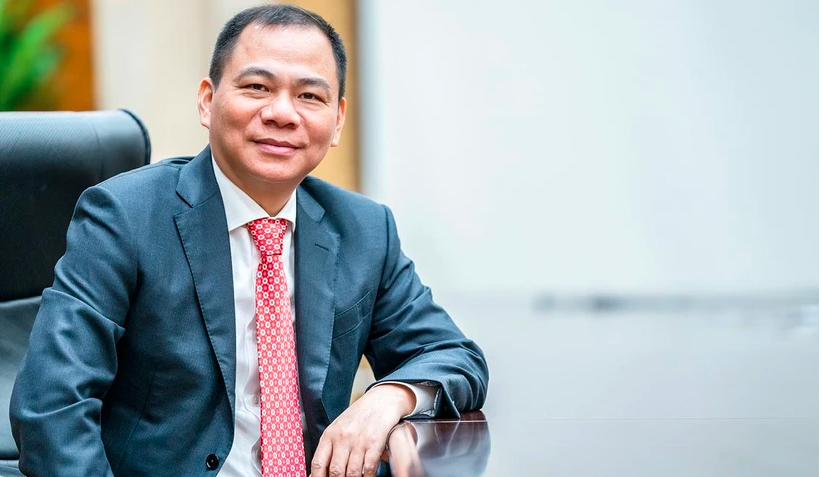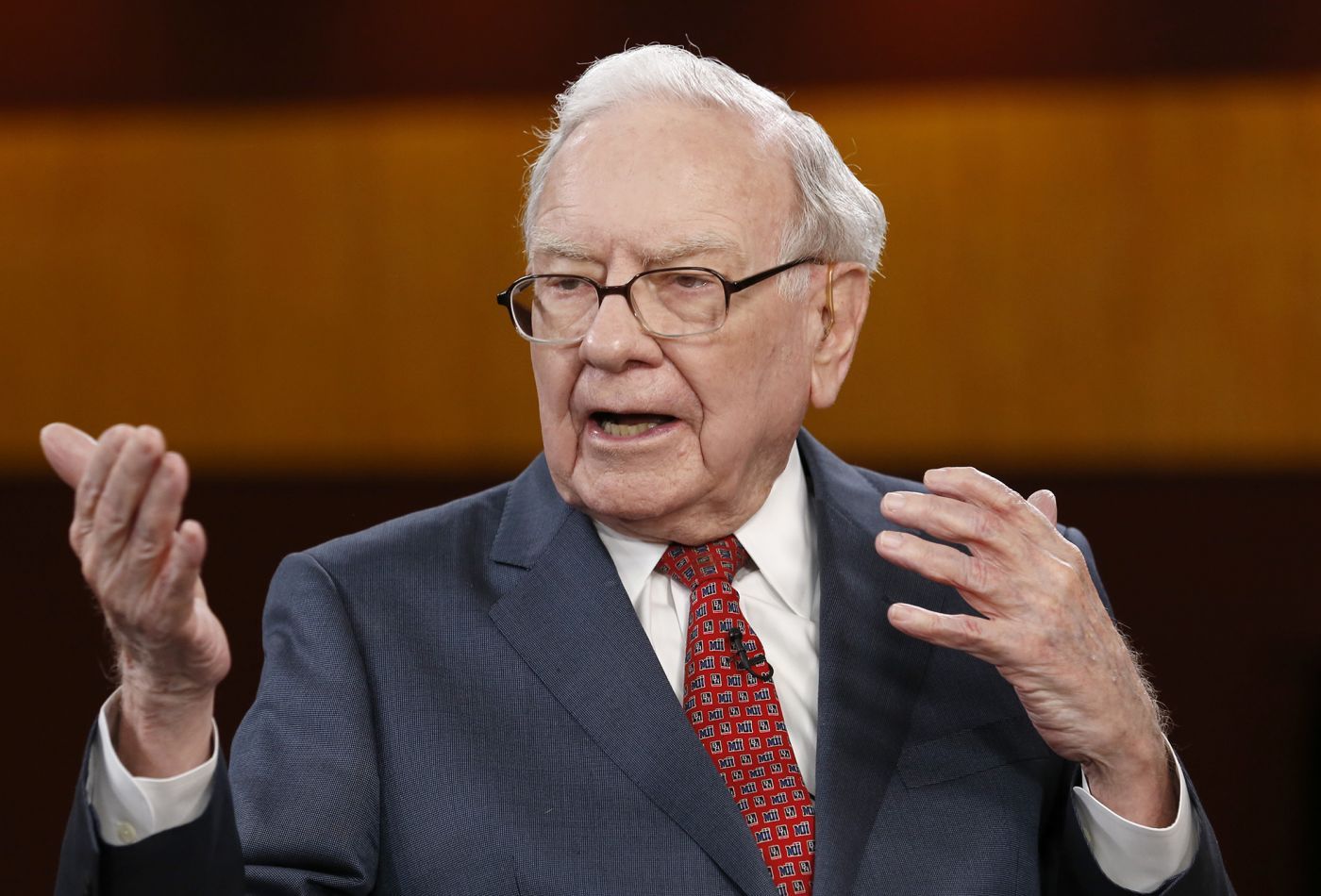Being born with a silver spoon, always living in luxury, served by servants; growing up without needing to try and still become wealthy by inheriting a massive fortune from parents… That’s what we usually think about the lives of the privileged children from billionaire families.
However, the reality is not as easy as that. The upper class often has a very special way of educating their children, especially the “tycoons” in the business world. They will not simply work their whole lives just for their children to enjoy and become lazy individuals.
Rich kids still have to earn money
In Vietnam, billionaire Pham Nhat Vuong – Chairman of Vingroup – is an inspiration for many people when it comes to teaching children. Mr. Vuong and his wife have 3 children, 2 boys and 1 girl, namely Pham Nhat Quan Anh, Pham Nhat Minh Hoang, and Pham Nhat Minh Anh. Despite having a massive fortune, being generous and helping others, Mr. Vuong is famous for being very strict with his children.

Billionaire Pham Nhat Vuong – Chairman of Vingroup
In one sharing session with the media, Mr. Pham Nhat Vuong frankly stated that his perspective is that his children must work hard, love labor, and be diligent in improving themselves. He once mentioned that when they were in Ukraine living in a large house, he would buy a load of bricks and have them dumped in the yard during the summer. Then, his eldest son and his friends would carry the bricks from one end to the other, and after finishing, they would be rewarded with 100 dollars. They did this tirelessly throughout the summer.
When they grew up and finished university, Pham Nhat Quan Anh also had to work, go on business trips, just like any regular employee. Mr. Vuong let his son follow him and the “veterans” in the group to learn how to work and accumulate valuable experience for himself.
Mr. Vuong affirmed that in work, there is no concept of “family members” or “outsiders”, everyone is equal.
“If you perform well, I will create a great playground for you. Otherwise, please stay away and let others do it. The eldest son has gone through ups and downs multiple times already, if he can do it, he gets promoted, if not, he gets demoted”, Owner of VinGroup said in an interview with VnExpress. Even at home, Mr. Vuong’s youngest daughter also has to regularly clean, wash dishes, do housework, not just enjoy the privileges of being a rich kid.
That is the story of the Vuong family’s way of teaching their children, and the world itself is full of other outstanding examples.

The son of Mr. Pham Nhat Vuong became a shareholder of Vingroup
Famous throughout the world not just as the former chairman of Chelsea, Roman Abramovich is also known as the billionaire father in Russia, with his strange way of teaching children about money and how to earn it.
That is to let the children indulge in spending money. Roman Abramovich’s point of view is “if you know how to earn money, you must also know how to spend money”. Therefore, the children of this billionaire are all financially independent from a young age, comfortable doing whatever they like, earning and spending money on their own.
With his experience as a “builder”, Roman Abramovich also encourages his children to be exposed to the business world at a very young age. In particular, his son Arkadiy has been following his father to business locations since childhood, learning the art of making money. When Arkadiy turned 21, this young man already had 5 years of “experience” in the business world, and all the assets he owns are the fruit of his own labor during those years.
Perhaps one of the most curious cases is the way billionaire Bill Gates educates his children, who has repeatedly topped the list of the richest people in the world. This billionaire has 3 children: Jennifer, Rory, and Phoebe.
In one family photo, his eldest daughter Jennifer was delighted to graduate from Stanford with a Bachelor of Science degree in biology, a stepping stone to pursue a medical career. Since childhood, Jennifer has had a dream of becoming a public health Master’s degree holder or pursuing a medical profession. Jennifer is also an accomplished equestrian. She won the Lionel Guerrand-Hermès equestrian cup in 2018. This success is not accidental, but thanks to the “preferential treatment” from her billionaire father.
Over that, he bought an entire $37 million road in Wellington, Florida for his daughter to practice horse racing. Jennifer also won the U25 national horse racing championship of the United States. Next to the Gates family estate in Florida is the home of Eve Jobs – the daughter of Apple co-founder Steve Jobs. Like the eldest daughter of the Gates family, Eve Jobs is also a student at Stanford and an accomplished equestrian.
Rory, Bill Gates’ only son, is now 20 years old. Rory has been described by his mother Melinda as a mysterious and loving boy, who loves puzzles and loves his sister. All 3 siblings Jennifer, Rory, and Phoebe study at Lakeside School. This school is where Bill Gates attended and discovered his passion for computers, as well as meeting co-founder Microsoft-Paul Allen.
Although Bill Gates is a technology pioneer, none of his 3 children are allowed to use mobile phones until they are 14 years old. Despite the father’s fortune worth over 90 billion USD, his children will only inherit a very small portion of his wealth. The majority of Bill Gates’ assets will go to the Giving Pledge charity fund and other welfare funds.
The 3 principles of educating children from billionaires for success
Former German Prime Minister Angela Merkel said: “Financial education is a compulsory course in life and the focus of children’s education, just as money is the focus of a family”.

Bill Gates’ billionaire family when the children were still young and before the divorce
American businessman of Japanese origin Robert Kiyosaki, author of “Rich Dad, Poor Dad” said: “If you cannot teach your children about money, someone else will replace you, such as lenders, police, and even fraudsters. If these people educate your children about finance, I am afraid you and your children will pay a much higher price”.
It can be said that it is never too early to educate children about money. During a child’s growth process, a lack of proper understanding of money can make a child not fully grasp the meaning of money and make mistakes easily. But the important thing is how to teach children about money correctly? About this, parents can refer to the teaching methods of famous billionaires:
Not leaving the entire fortune to children
The super-rich attach great importance to teaching their children about the value of money and how to deal with it. Looking at the way famous world billionaires such as Bill Gates, Warren Buffett, and Mark Zuckerberg teach their children, one can see a common point: they will not leave the entire fortune to their children.
To explain this action, billionaires believe that leaving the entire fortune will make the children lose motivation to work and contribute to society.
American billionaire Warren Buffett – a legendary investor, one of the richest people in the world, but his children don’t even know what their father does for a living. Speaking about this, the billionaire born in 1930 believes that children don’t have to inherit all the labor achievements of their parents, it’s not good for the kids in any way. It is best to give children enough money to make them feel like they can do anything, but not too much to the point where they don’t have to do anything.
CEO of Facebook – Mark Zuckerberg and his wife have agreed to donate 99% of Facebook shares (roughly $45 billion at the time of commitment) to the Zuckerberg charity fund.
Billionaire Michael Bloomberg, founder and CEO of the media and financial data company Bloomberg L.P., the 14th richest person in the world, has also stated that he will dedicate all his assets to charity before he passes away.
Setting an example for children with a simple and giving lifestyle
As mentioned, billionaires like Bill Gates, Warren Buffett, Mark Zuckerberg, and Michael Bloomberg all signed the Giving Pledge – committing to donate a majority of their assets to charity. The perspective on teaching children about money between this super-rich community has influenced and benefited their children greatly. For example, all 3 of Bill Gates’ children are said to be happy that they will not inherit their father’s fortune, and they are also actively involved in charity work just like their father.

Warren Buffett, the billionaire, always teaches children to have a humble, frugal life
Billionaire Warren Buffett is famous for living a simple and frugal life, even though he is among the richest people in the world. He lives in a regular house and uses an ordinary phone. In contrast, he is willing to spend billions of dollars on charity. The lifestyle of the legendary investor has greatly influenced his son Peter Buffett.
Money is earned and reaped as it is spent
American billionaire John D. Rockefeller once said that children in his family, starting at the age of 6, would be given a fixed weekly allowance that is completely within their control. However, the children must record every cent they spend and what they spend it on for their parents to check. In this process, the children have learned how to spend, save, and manage money from a young age, as well as training their willpower and ability to delay satisfaction. Nowadays, the Rockefeller family has maintained their wealth for 6 generations.
In reality, children who have a proper understanding of money from a young age will know how to balance desires and abilities, and live within their means. These children are more likely to succeed in the future compared to children who do not know how to spend money.
Learning how to use money is the most valuable inheritance that parents can leave to their children throughout their lives. A person’s attitude towards money reflects their ability to control and plan for an independent life in the future. Therefore, instead of teaching children to work hard to save money, it is better to teach them to spend money properly.
It can be seen that the super-rich face specific difficulties when having too much money. Therefore, they have a clear and straightforward perspective on and approach to teaching about money. They teach children to delay satisfaction, emphasize the proper spending of money, cultivate good habits, and self-manage their lives. For example, many parents allow their children to keep savings, open savings accounts to accumulate and use for important plans in the future. From there, children can manage and spend their money through budgeting, even maximizing its value at a certain age.












